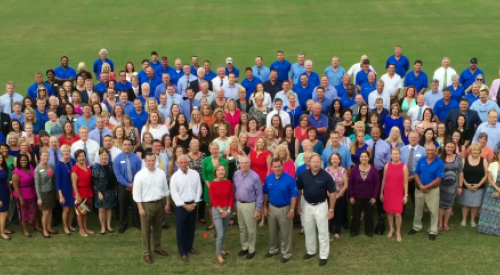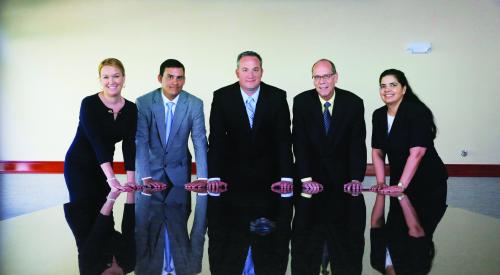|
|
|
|
Start by screening résumés. Look for historical patterns that match your ideal candidate, says consultant Martin Freedland. "People tend to repeat their history. Job hoppers job hop, successful people continue along the same path" and so on. One person should be the gatekeeper for résumés, do telephone screening to dig deeper into facts and do a preliminary evaluation of communication skills, personality, attitude and mental quickness before asking someone to come in for an interview.
Tim Bianchi, human resources manager for Regency Homes in Urbandale, Iowa, has a three-step screening process. The assistant HR manager reviews all the résumés, as does Bianchi, and chooses the candidates who will pass into the next round. They then do phone screenings in which they describe the job more and find out a little more about each candidate. In the last screening step, the assistant HR manager conducts a fairly structured interview along with someone from the appropriate department who can describe firsthand the environment of the department. From there, the top picks go to Bianchi and the department director, who decide which candidate merits an in-depth interview.
|
When choosing who to interview, remember to compare their qualifications and characteristics with what you're looking for - not just with each other. The first crop of candidates might not yield any promising prospects. Resist the urge to just hire anyone when you're under the gun. Starting over at this stage is much cheaper and easier than hiring someone who does not work out.
Opinions vary on the number of interviews that are necessary, who should be involved and the length of each interview. Freedland's structured 10-step system includes a three- to five-hour, in-depth interview with top candidates. "It takes that long to get people's energy levels down to the point where they'll tell the truth," he says. "Ideally you'll get to a point where they say, 'I probably shouldn't say this, but ...'" He takes advantage of the fatigue factor, yes, but really he's doing what every other hiring manager should be - trying to get as much information as possible to make the right decision.
Grayson Homes president Cindy McAuliffe says she typically might interview an administrative candidate for 30 to 45 minutes and a production person for 1 1/2 hours, but two other people also are interviewing that person separately and then comparing notes. Hamlet Homes operates similarly, with each interviewer charged with getting at three or four of the job's key dimensions already identified and then coming together to compare notes.
Unless you have a photographic memory, take notes. Some managers think it makes candidates nervous, but HR professionals stress it is essential to create an accurate picture of the candidate. It also provides a written record of the interview - a wise thing to have should legal issues arise.
Some managers go into an interview with a list of specific questions and conduct a structured interview, while others use behavioral interview guidelines and ask questions based on previous responses, getting in the crucial questions when the moment seems right. In either case, the idea is to be as conversational as possible and help put the candidate at ease.
"Interviewing is a difficult art," says Marian Wright of Village Homes. "It's knowing how to ask a question and be very conversational about it, but also disciplined enough not to answer for a candidate or let them off the hook." Pauses are normal as candidates collect their thoughts, but long silences tell a lot, she says.











